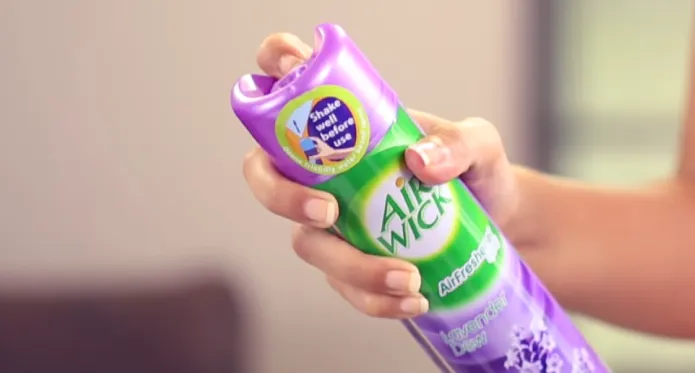Last Updated on October 16, 2023
There is a lot of debate on this topic, but the answer to the question, do air fresheners attract bugs, is both yes and no at the same time, depending on what type of bug you are referring to. Some people believe that using air fresheners in your home can attract bugs. This claim has no scientific evidence to support this claim, and in fact, using an air freshener may actually help to get rid of any bugs that are already present.
Bugs are attracted to dirty or moist environments, which is why they often invade homes and businesses. Air fresheners help to eliminate these conditions, making your home or office an unattractive place for bugs to live.
One possibility is that the strong scents from air fresheners can confuse or disorient bugs, causing them to mistake your home for a place where they can find food. Another possibility is that the chemicals in air fresheners can be attractive to bugs, acting as a kind of bait.
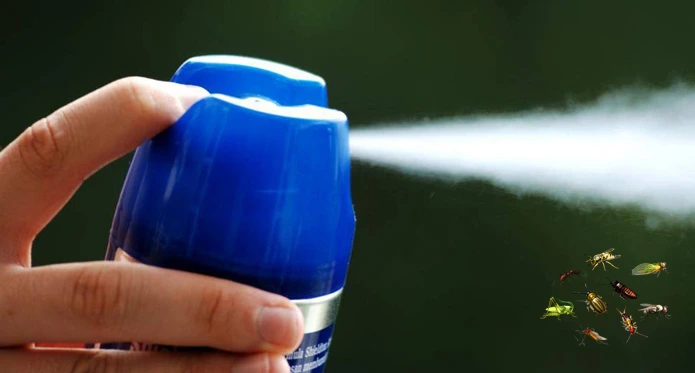
We will teach you about the different smells and chemicals of air fresheners and how they can attract or repel bugs. And also give you tips on how to keep bugs away from your yard and home without using harsh chemicals.
Do Air Fresheners Attract Bugs: Explanations
While there is no definitive answer as to why air fresheners might attract bugs, there are a number of possible explanations. Here are a few scientific explanations:
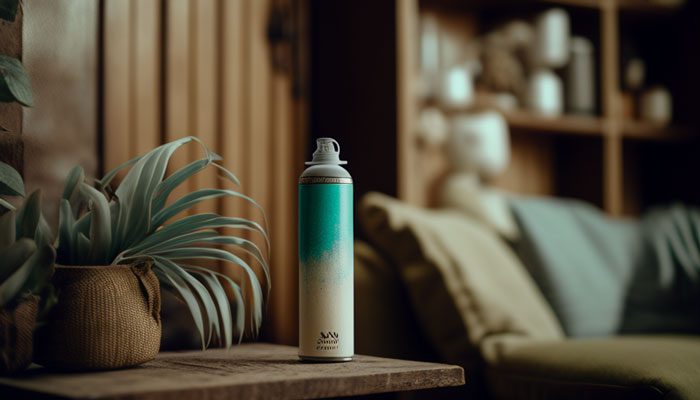
Sweet Smell of Air Fresheners Attracts Flies and Other Insects
While the sweet smell of air fresheners may be pleasant to humans, it can also be attractive to flies and other insects whose bodies are attracted to sugary elements. Many commercial air fresheners contain ingredients that are specifically designed to mimic the scent of ripe fruit or flowers, which can make them even more attractive to pests.
Many air fresheners contain synthetic fragrances that can be made from petroleum-based chemicals. These chemicals can also be attractive to bugs, as they can mimic the scents of natural substances that insects are drawn to. By imitating the scent of flowers, air fresheners essentially trick insects into thinking there’s food nearby.
Chemicals in Air Fresheners Can Mimic The Pheromones That Insects Use to Attract Mates
Many air fresheners contain synthetic chemicals similar to pheromones insects use to attract mates. While these chemicals might not be harmful to humans, they can be very attractive to pests. These fragrances may inadvertently signal to bugs that there is a potential mate nearby.
These air fresheners can actually make your home more appealing to bugs. The chemicals, in some cases, may even cause the bugs to mate more frequently, resulting in a population explosion. The artificial scents in air fresheners can be overwhelming for some insects, causing them to become disoriented and even die.
VOCs (Volatile Organic Compounds) Released By Air Fresheners Can Attract Insects
While air fresheners may seem like they would be nothing but helpful in terms of keeping your home smelling nice, they can actually end up attracting certain types of insects. This is due to the presence of VOCs, or volatile organic compounds, which are released into the air along with the fragrance of the air freshener.
These VOCs can be especially appealing to insects that are attracted to the scents that they give off, such as moths and cockroaches. The VOCs can also provide a food source for these insects, making your home even more inviting to them. Some insects, like fruit flies, are attracted to the VOCs in air fresheners.
These insects are drawn to the VOCs because they use them to find food sources. In other words, the VOCs in air fresheners can make your home smell like a potential food source for certain types of insects.
Some Chemicals In Air Fresheners Attract Fruit Flies
Fruit flies are a common problem in many homes, and they can be difficult to get rid of. One question that many people have is whether air fresheners actually attract fruit flies. The short answer is yes, air fresheners can attract fruit flies. The main reason for this is that most air fresheners contain a chemical called ethyl acetate.
This chemical is used to provide the fruity scent that is so common in air fresheners. It also happens to be one of the main attractants for fruit flies. In fact, even ripe fruits and vegetables give off small amounts of ethyl acetate, which is why fruit flies are often drawn to them. If you want to avoid attracting fruit flies, it’s best to avoid using air fresheners or choose ones that do not contain ethyl acetate.
Some Explanations Why They Do Not Attract
Lavender Oil Air Freshener Repels Flies
Lavender oil has been used for centuries as a natural insect repellent. The oil is extracted from the lavender plant and is known for its pleasant scent. In recent years, lavender oil air fresheners have become popular as an alternative to chemical based products.
While there is no scientific evidence to support the claim that lavender oil repels flies, many people swear by its efficacy. Some say that the highly fragrant scent of the oil helps to mask the smells that attract flies, while others believe that the oil acts as a natural repellent. If you are looking for a natural way to keep flies out of your home, give lavender oil a try.
Do Scented Candles Attract Bugs?
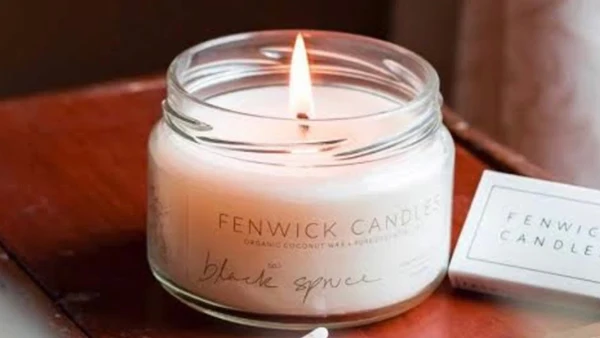
Scented candles may or may not attract bugs. People believe that the scent of a candle can be inviting to bugs, while other people believe that the heat of the candle will keep bugs away. There is no definitive answer, but it is probably best to avoid using scented candles if you are worried about attracting bugs. If you do use them, be sure to keep them away from any food or water sources that could attract bugs.
Do Scented Candles Attract Flies?
It depends on the type of bug and the scent itself. Different types of bugs are attracted to different smells. Some people believe that flies are attracted to floral scents, while others think that citrusy smells repel them.
For example, moths are attracted to the scent of lavender, while mosquitoes are drawn to the smell of human sweat. If you are trying to scare and repel bugs off your home, it is essential to figure out which type of bug you are dealing with before choosing a scent.

You can try burning citronella candles if you are concerned about bugs being attracted to your scented candles. These candles have a strong citrus smell that is known to repel mosquitoes.
If you are looking for ways that will keep bugs at a safe distance from your home, it is important to make sure that there isn’t any food left out in the open. Bugs are more attracted to food smells than they are to scented candles.
Does Air Freshener Repel Bugs?
There is no clear answer to this query as different air fresheners contain different ingredients and levels of effectiveness. It is generally agreed that using any kind of air freshener will not repel bugs, as they are not drawn to the scent. Some air fresheners may even attract certain types of bugs in your bedroom, or bathroom.
The chemical compounds in air fresheners are not effective at repelling bugs. They may even attract them because of the smell. Air fresheners work by masking smells, and bugs are attracted to certain scents. So it is always best to do your research before using one in an area where you are trying to keep insects away.
As we mentioned above, there is no final answer to this concern. Some of these ingredients may attract bugs, while others may actually repel bugs. Different air fresheners have different ingredients. Natural ingredients are more likely to repel bugs than synthetic chemicals. Citronella, eucalyptus, and lavender are all natural ingredients that have been shown to repel certain types.
Not all air fresheners are created equal. Some air fresheners contain chemicals that disrupt the communication systems of insects, causing them to fly away. Some of these chemicals are also toxic to insects, so that they may avoid or die after exposure to air fresheners.
There are a few different ways that air fresheners can keep bugs away. The most common method is by emitting chemicals in the air that interferes with the way insects communicate. These chemicals can come from natural sources, like citrus fruits, or they can be synthetic.
Either way, they work by disrupting the insects’ nervous systems, making it difficult for them to fly or function properly. The chemicals may also be toxic to insects, causing them to die after exposure. While air fresheners are generally effective at repelling bugs, it’s important to note that they are not a perfect solution.
Insects can sometimes become immune to the chemicals used in air fresheners, and they may also be able to find their way into your home through other means, like open doors or windows. If you’re concerned about bugs in your home, it’s always a good idea to consult with a pest control professional.
Can Bugs Smell Perfume?
The answer to this question is not known for certain, but it is believed that bugs cannot smell perfume. Some people believe that bugs can smell perfume, while others think that they cannot. Scientifically speaking, there is zero evidence to support either claim. This is because bugs have a different sense of smell than humans, and they are not able to detect the same smells that we can.

The sense of smell is one of the most important senses for humans, but it is not as well developed in other animals. This is because the part of the brain that processes smell, the olfactory bulb, is much smaller in other species. Perfume is a synthetic scent that is not found in nature, so it is unlikely that bugs would be able to identify it.
It is believed that most bugs are not sensitive enough to detect the same range of smells as humans. Bugs might have an even less or more developed sense of smell than other animals. While we do not know for certain whether bugs can smell perfume, it is unlikely due to their limited sense of smell.
There are some scents that are known to attract bugs, such as the sweet smell of flowers or the pungent odor of rotting fruit. So while bugs may not be able to enjoy the scent of your favorite perfume, they can still be drawn to you by other smells.
Why Do Bugs Hate Cinnamon?
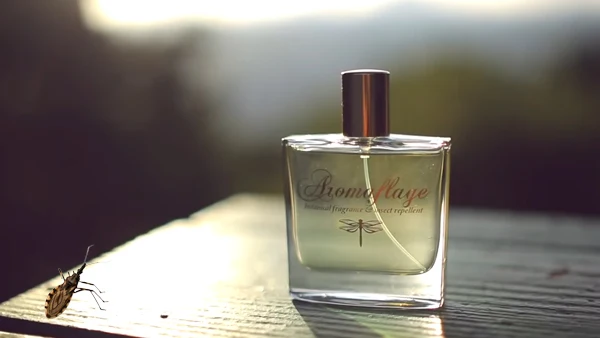
Bugs hate cinnamon because it’s a natural insecticide. When you put cinnamon in your home, it helps to keep bugs away. Cinnamon is also a great way to get rid of ants. Just sprinkle some cinnamon powder around the areas where you see ants, and they will eventually go away. Bugs also hate the smell of cinnamon, so it can help to keep your home smelling fresh and clean.
Cinnamon contains a compound called cinnamaldehyde, which is toxic to insects. When insects come in contact with this compound, they die. Researchers have also found that cinnamon oil is effective at killing mosquito larvae, making it a potential natural pest control agent.
Cinnamon oil is a non-toxic and safe way to control bugs and pests, making it a great alternative to chemical insecticides. Cinnamon oil is also effective against other common household pests, such as ants, roaches, and spiders. In addition to being an insecticide, cinnamon oil has also been shown to have antibacterial and antifungal properties.
Not only is it effective at killing bugs, but it also smells great. This makes it a safe and natural way to control pests in the home. So if you are in search of a natural solution to keep pests at bay, try using cinnamon oil. When used as an insecticide, cinnamon oil can be applied directly to the skin or clothing, or it can be diffused into the air to repel insects.
Why are Bugs Attracted to UV Light?
The exact reason why each bug is attracted to UV light will vary depending on the species. Out of many, here are a few reasons why bugs might be attracted to UV light.
Bugs are attracted to UV light because it signals the presence of food and can help them find food. Many bugs rely on sight to find food, and UV light is especially visible in the dark. Many flowers produce UV reflective patterns to attract bugs for pollination. So, when a bug sees a flower in the dark, it is attracted to the UV light reflecting off of it.

Another reason bugs may be attracted to UV light is that it can help them avoid predators. Some predators are attracted to UV light, so by being attracted to UV light, bugs can keep themselves hidden from these predators. Some bugs use UV light to communicate with each other. They can stay in communication with other members of their species.
Bugs are also drawn to UV light as it can help them find mates. Many bugs use UV light to find mates, and by becoming attracted to UV light, these bugs can increase their chances of finding a mate.
Do Air Fresheners Keep Spiders Away?
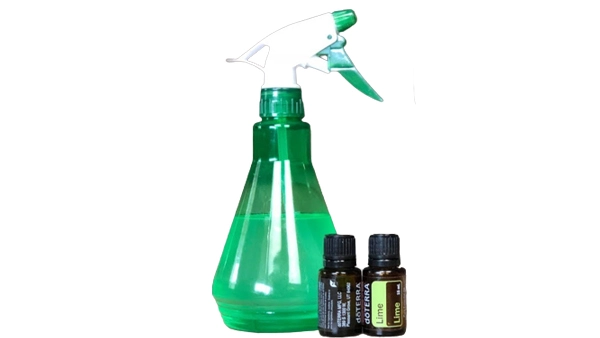
There is no definitive answer to this question as different people seem to have different opinions on the matter. Some people believe that spraying an air freshener in a room will keep spiders away, while others claim that this will only encourage the spiders to move somewhere else in the house.
There are a few things that can be said about air fresheners and spiders. Air fresheners usually contain chemicals that can be harmful to spiders. The strong scent of an air freshener may be overwhelming for a spider, and they may prefer to avoid an area that is heavily scented. For these reasons, it might be possible that air fresheners could help to keep spiders away.
While there is no clear common consent on whether or not air fresheners keep spiders away, there are a few possible explanations for why some people believe that they work.
One theory is that the strong scent of the air freshener can mask the smell of prey, making it harder for spiders to find food.
The other possible explanation is that the chemicals in the air freshener may act as a repellent, keeping spiders away from areas where the spray has been used.
It is also worth noting that air fresheners do not provide a lasting solution to the problem of spider infestations. Spiders will eventually return to an area after the scent of the air freshener has faded, so it is important to take other steps to keep them at bay if you want to keep spiders out of your way.
Will Air Fresheners Kill Cockroaches?
This is a difficult question to answer definitively. There is no simple answer to this question. It cannot be answered with a yes or no. Air fresheners may kill cockroaches through suffocation or poisoning, but the substances found in air fresheners can also be harmful to humans. If you are trying to get rid of cockroaches, it might be better to use a pesticide that is specifically targeted at cockroaches.
While some air fresheners may be able to kill insects, they are generally not equally effective against cockroaches, even though they may have insecticidal properties. Due to their ability to hold their breath for long periods of time, cockroaches are not affected by the fumes that come from air fresheners since they can hold their breath for extended periods of time.

Even though some air fresheners will not be able to completely kill cockroaches, they can certainly weaken them and make them more easily controlled by other pest control methods in the future.
The chemicals in some air fresheners may potentially be harmful to cockroaches, so it is important to keep them away from them. Depending on the nature of the chemical, these pests may experience difficulties breathing, become disoriented, and eventually die as a result of coming into contact with these chemicals.
Pyrethroids are a type of pesticide that is commonly used in air fresheners. Pyrethroids work by causing muscle spasms and paralysis in insects, eventually leading to death. Cockroaches are particularly vulnerable to pyrethroids, and even low concentrations of these chemicals have a deadly effect.
Will Air Fresheners Kill Flies?
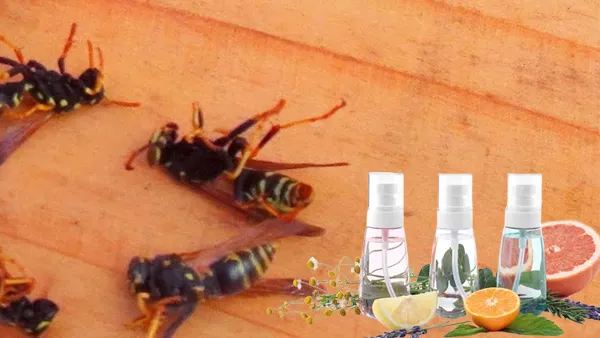
If you examine the specific product of air fresheners, you will find that there is some debate as to whether or not these products will be effective in killing flies. Many people believe that air fresheners kill flies by releasing chemicals into the air that are then absorbed by the flies. But there is no scientific proof documentation to back up this argument.
As far as eliminating a fly problem is concerned, an air freshener is unlikely to be able to do so. The majority of air fresheners simply mask odors rather than remove them entirely. There are a few air fresheners on the market that contain ingredients like eucalyptus oil or menthol, which have been shown to have insecticidal properties.
These ingredients are usually present in very small amounts and are not likely to be a deadly effect on flies. Other air fresheners rely on natural ingredients, such as essential oils, which are generally not harmful to insects. So while air fresheners alone are unlikely to kill flies, they may be able to do so when used in conjunction with other products.
Why are Bugs Attracted to Light?
Bugs may be attracted to light for several reasons.
One reason bugs are attracted to light is that they are drawn to heat. It could be that they are trying to find their way out of a dark space. In nature, the sun is a reliable source of warmth, so bugs are programmed to seek out sunny spots. This also means that they are drawn to the heat of lightbulbs, which can be deadly for them.
Another possible reason is that insects use light in order to orient themselves, navigate through their surroundings, and learn about their surroundings.
The most likely explanation is that bugs are simply attracted to bright colors. In nature, bright colors often indicate sources of food, so it makes sense that bugs would be attracted to anything that stands out in their environment.
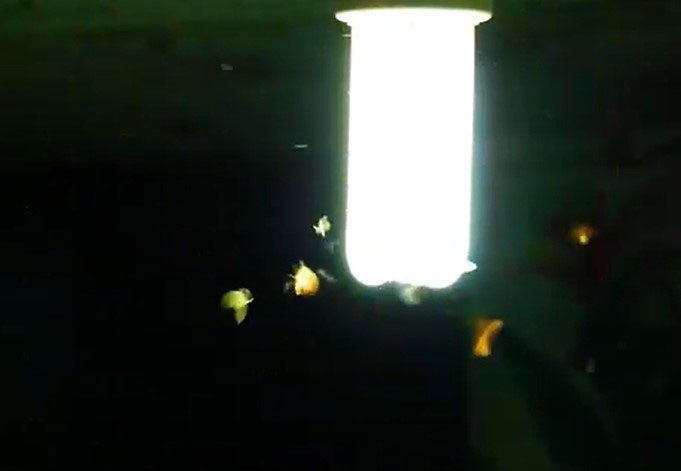
It is also possible that bugs are more sensitive to light which makes it easier for them to see potential mates. In many species of insects, the males will fly towards the light in hopes of finding a female. This behavior also makes them more vulnerable to predators.
Scientists believe that the attraction to light is an evolutionary holdover from when bugs lived solely in nature. Despite the fact in the present, as we are living in a globalized environment of artificial smell and lights, bugs are still incapable of and have adapted to survive without them. Understanding the reasons why bugs are drawn to light can help us to keep them out of our homes and gardens.
What Smells Attract Cockroaches?
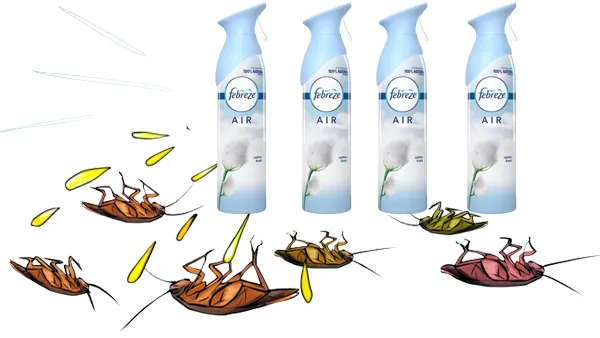
Cockroaches are attracted to many different smells, including the smell of food, grease, and even other cockroaches. Food is the most common attractant for cockroaches, and they are especially attracted to sweets, starches, and meat. The strong smell of food is especially enticing to cockroaches, as it indicates a potential source of sustenance.
Grease is another common attractant, as cockroaches are drawn to the oils and fats that can be found in cooking grease.
Sweat is also quite appealing to these pests, as it contains both salt and ammonia, two substances that cockroaches find irresistible.
The cockroaches have become similarly susceptible to being attracted to the pheromones given off by their fellow cockroaches.
These pheromones help cockroaches communicate with each other, and they also serve as a marker for potential mates. The pheromones secreted by other cockroaches can attract swarms of insects, leading to infestations. The smell of other cockroaches can be a powerful attractant for these pests.
Taking Everything Into Account
All the above points on do air fresheners attract bugs or not. There are a few explanations behind why bugs may be attracted to air fresheners. Scientists believe it is an evolutionary carryover from when bugs lived almost exclusively in nature. Now that we live in a world of artificial smells and lights, bugs have not yet adapted to ignore them.
Understanding the reasons why bugs seem to be particularly more attracted to light can greatly assist us in keeping them out of our homes and gardens. Some of the most common attractants for cockroaches are food, grease, and the pheromones emitted by other cockroaches.
Taking steps to remove these attractants from your home can help discourage cockroaches from residences. Using pest control products that emit light can help to trap and kill these pests.
Related Article:

